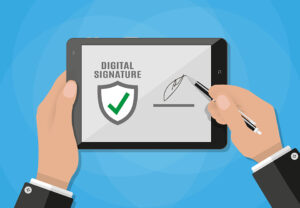In today’s world, as our reliance on electronic devices continues to grow, so does the demand for batteries. With this surge in battery consumption comes a pressing need for sustainable practices. Enter the battery recycling market, a vital sector working towards reducing environmental impact and conserving valuable resources. In this blog, we’ll delve into the intricacies of this industry and how it’s shaping a greener future.
The Battery Recycling Market: A Global Perspective
The battery recycling market has witnessed exponential growth in recent years, propelled by increasing environmental awareness and stringent regulations. This market encompasses various types of batteries, including lead-acid, nickel-cadmium, nickel-metal-hydride, and lithium-ion, each requiring unique recycling processes.
Lead-acid batteries, commonly found in vehicles and backup power systems, constitute a significant portion of the recycled battery market. Their recycling process involves crushing and smelting to extract lead, which is then repurposed for new batteries and other lead-based products.
Nickel-cadmium and nickel-metal-hydride batteries, prevalent in portable electronics and power tools, undergo a thorough mechanical and chemical process. This process results in the recovery of nickel, cadmium, and other valuable metals.
Lithium-ion batteries, the powerhouse behind smartphones, laptops, and electric vehicles, represent the fastest-growing segment of the battery recycling market. These batteries undergo a sophisticated recycling process that includes shredding, heating, and chemical treatments to extract valuable materials like lithium, cobalt, and nickel.
Environmental Impact: Reducing the Carbon Footprint
The battery recycling market plays a pivotal role in reducing the environmental impact of battery production. Mining and manufacturing of raw materials for batteries, particularly lithium-ion batteries, are associated with significant carbon emissions. By recycling batteries, we curb the need for new raw materials, thus mitigating the environmental toll of mining operations.
Moreover, recycling batteries helps prevent hazardous materials from ending up in landfills. Lead-acid batteries, for example, contain toxic substances like lead and sulfuric acid. Proper recycling ensures these materials are safely extracted and reused, preventing soil and water contamination.
Economic Opportunities and Resource Conservation
Beyond environmental benefits, the battery recycling market presents substantial economic opportunities. The recovery of valuable metals from discarded batteries reduces the reliance on mining operations, which are often resource-intensive and environmentally disruptive. Additionally, recycled materials can be sold to manufacturers, providing a sustainable source of raw materials and reducing production costs.
Innovation and Technological Advancements
The battery recycling market is not stagnant. Technological advancements are driving innovation, enabling more efficient and environmentally friendly recycling processes. Advanced techniques, such as pyrometallurgical and hydrometallurgical methods, are gaining traction, allowing for higher recovery rates of valuable metals.
Moreover, research is focused on developing methods to recycle complex lithium-ion batteries, which contain a mix of valuable materials and pose unique challenges. Breakthroughs in this area could further enhance the sustainability of battery recycling.
Consumer Awareness and Participation
As consumers become more environmentally conscious, they play a crucial role in driving the demand for battery recycling. Awareness campaigns and convenient recycling programs make it easier for individuals to dispose of their used batteries responsibly. This collective effort contributes significantly to the success of the battery recycling market.
Conclusion
The battery recycling market stands at the forefront of sustainable practices, offering a beacon of hope for a greener future. Through technological advancements, economic incentives, and heightened consumer awareness, this market is poised to revolutionize the way we approach battery consumption. As we continue to embrace this industry, we take a significant step towards a more sustainable and eco-conscious world. Let’s power our future responsibly, one recycled battery at a time.



